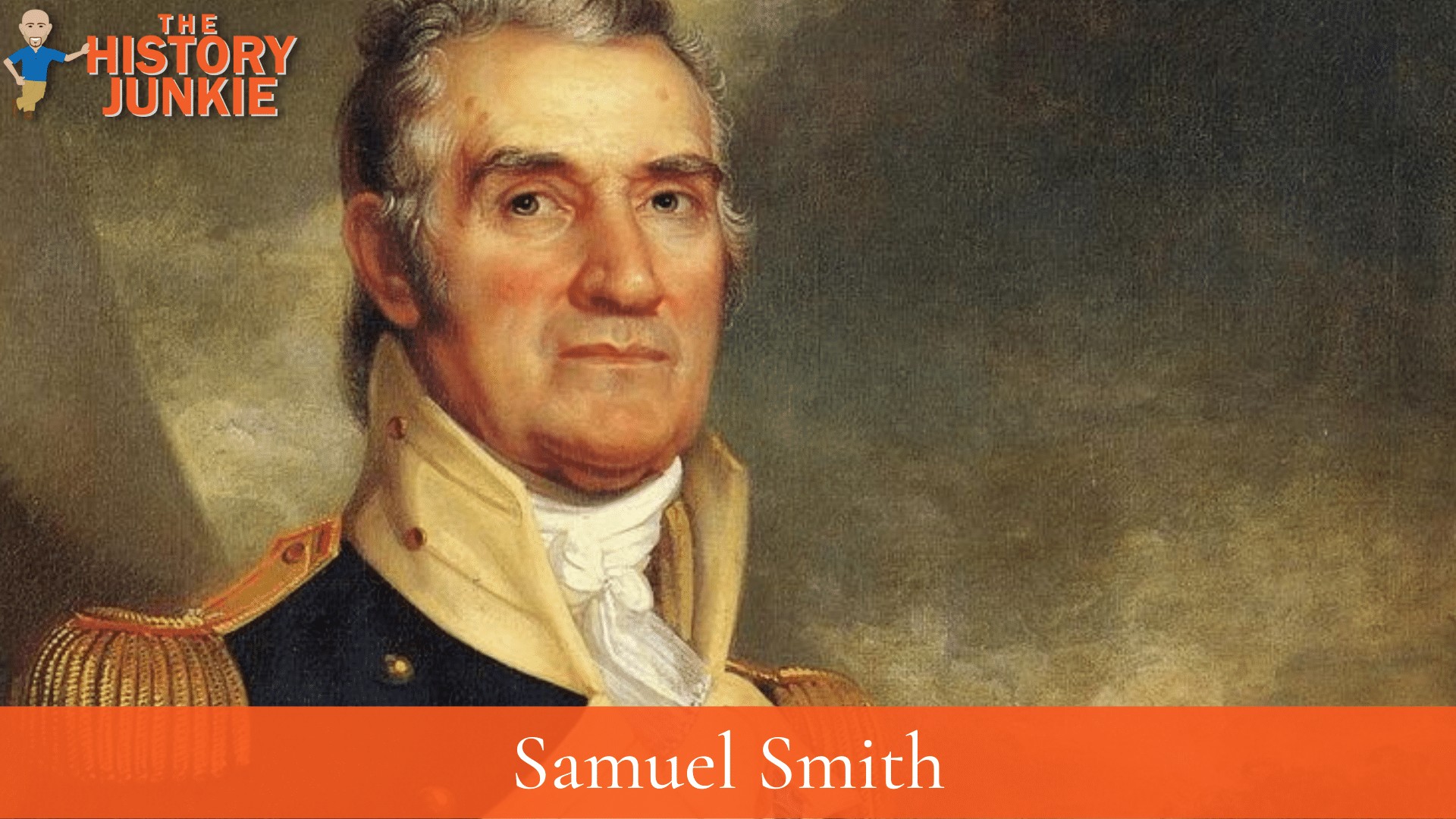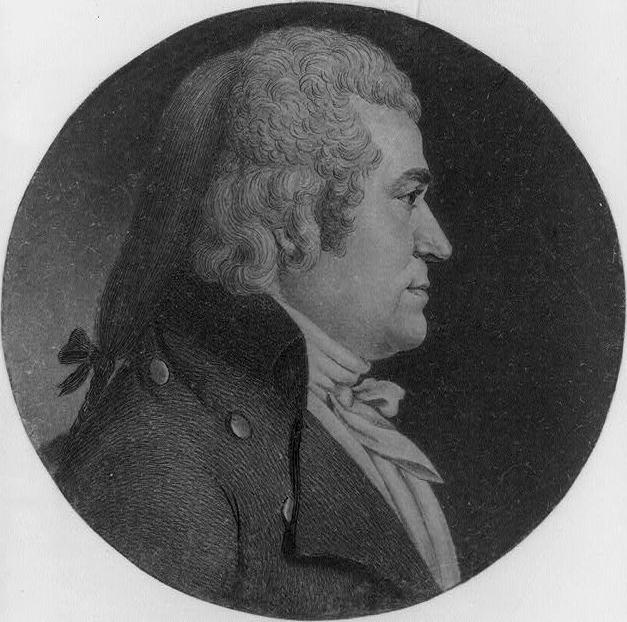Samuel Smith was a United States Senator and Representative from Maryland, a mayor of Baltimore, Maryland, and a general in the Maryland militia.

He served in the military throughout early American history. This included the American Revolution, Domestic Affairs, and the War of 1812.
He was the brother of cabinet secretary Robert Smith.
Born in Carlisle, Pennsylvania, Smith moved with his family to Baltimore, Maryland, in 1759.
Military Career
He attended a private academy and engaged in mercantile pursuits until the American Revolutionary War, at which time he served as captain, major, and lieutenant colonel in the Continental Army.
After the war, Smith engaged in the shipping business.
From 1790 to 1792, Smith was a member of the Maryland House of Delegates. At the time of the threatened war with France in 1794, he was appointed brigadier general of the Maryland militia and commanded Maryland’s quota during the Whiskey Rebellion.

Smith served as a major general of the Maryland militia during the War of 1812 and commanded the defenses of Baltimore during the Battle of Baltimore and Fort McHenry in 1814.
The American victory there can largely be attributed to Smith's preparation for the British invasion.
Political Career

Smith entered into national politics when he was elected to the Third United States Congress, serving from March 4, 1793, until March 3, 1803.
As a Congressman, Smith served as chairman of the U.S. House Committee on Commerce and Manufactures. Smith entered the Senate election in 1802 and was elected as a Democratic-Republican to the United States Senate.
He was re-elected in 1808 and served from March 4, 1803, until March 3, 1815. While senator, Smith served as President pro tempore of the Senate during the Ninth and Tenth Congresses.
Smith was elected to the Fourteenth Congress on January 31, 1816, to fill the vacancy caused by the resignation of Nicholas R. Moore and was re-elected to the Fifteenth, Sixteenth, and Seventeenth Congresses.
In the House, Smith served as chairman of the U.S. House Committee on Expenditures in the Department of the Treasury and as a member of the Committee on Ways and Means.
On December 17, 1822, Smith resigned as a congressman, having been elected as a Democratic-Republican (later Crawford Republican and Jacksonian) to the United States Senate to fill the vacancy caused by the death of William Pinkney.
Final Years and Death
Smith served as President pro tempore of the Senate during the Twentieth and Twenty-first Congresses and as chairman of the Committee on Finance (Eighteenth and Twentieth through Twenty-second Congresses).
He was re-elected in 1826 and served until March 3, 1833.
In 1828, Smith served as Vice-President of the Maryland State Colonization Society, of which Charles Carroll of Carrollton, one of the co-signers of the Declaration of Independence, was president.
The MSCS was a branch of the American Colonization Society, an organization dedicated to returning black Americans to African states such as Liberia in order to gain freedom.
Two years later, in 1835, Smith became mayor of Baltimore and served in that position until 1838, when he retired from public life.
Smith died in Baltimore in 1839 and is interred in the Old Westminster Burying Ground.
